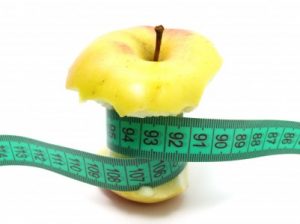How To Identify Signs Of Anorexia In Your Teenager
 Anorexia is the third most common chronic illness among adolescents, according to the National Association of Eating Disorders.
Anorexia is the third most common chronic illness among adolescents, according to the National Association of Eating Disorders.
The disease, most commonly suffered by females between the ages of 15 and 24, has a mortality rate 12 times higher than the death rate associated with all causes of death for females of that age. Because the disease can be fatal and usually begins during the teen years, it is important for parents to recognize the signs of anorexia.
What is Anorexia?
People with anorexia are characterized by their fear of weight gain and the distorted perception they have of their own body. It is difficult for anyone with anorexia to maintain a regular body weight because he or she takes in so little food and often exercises excessively. For an anorexic, eating becomes an obsession.
Signs of Anorexia in Teens
A teen might be suffering from anorexia if he or she continuously diets, excessively exercises, denies hunger or develops rituals for eating. A ritual might include eating food in a designated order or chewing excessively.
Less obvious signs that a teen suffers from anorexia include infrequent menstrual cycles, rapid weight loss concealed by loose clothing, and an obsession with perfection. Students who feel pressure to succeed in school and in their extracurricular activities sometimes find an addictive sense of control in monitoring their food intake.
Some of the consequences of anorexia may be visible in a person suffering from the disease. Effects of anorexia include fainting, dry hair and skin, and a thin layer of hair that grows throughout the body.
Why Anorexia?
According to the National Association of Anorexia Nervosa (NAAN), 81 percent of 10-year-olds are afraid of being fat. The NAAN has also confirmed that by age 10, the same percentage of young girls will have dieted at least once.
Girls between the ages of 11 and 19 attributed their primary desire to lose weight to magazine pictures, noting that the images influenced their ideas of a perfect body shape.
Source: WebMD
 Eating Disorder Self Test. Take the EAT-26 self test to see if you might have eating disorder symptoms that might require professional evaluation. All answers are confidential.
Eating Disorder Self Test. Take the EAT-26 self test to see if you might have eating disorder symptoms that might require professional evaluation. All answers are confidential.